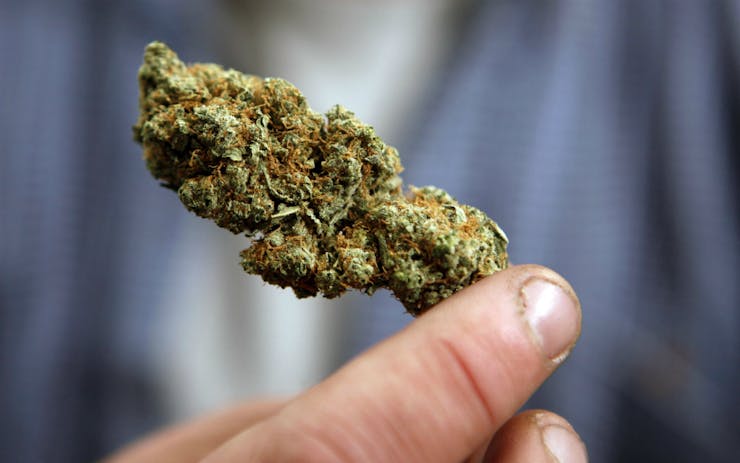HARTFORD, Conn. (AP) — Connecticut is encouraging its hospitals, universities and licensed cannabis producers to embark on research that could improve understanding of marijuana’s medicinal qualities, something officials hope will also boost the state’s biotech industry.
While there’s some research already underway in Connecticut and elsewhere, officials here hope the state’s initiative, which began Oct. 1, will lead to much greater exploration of medical cannabis. The proposals will be vetted by an institutional review board, approved by the Department of Consumer Protection commissioner and theoretically protected under the legal umbrella of the state’s 4-year-old medical marijuana law.
Researchers, they contend, shouldn’t be impeded by current federal constraints because of recent legislation that prevents the federal government from punishing states using cannabis for medical purposes.
“We need more research, and it’s going to take a joint state and federal approach to get researchers more interested in this topic.”
“This is the first formal program that we know of that will provide the protections and the framework to be able to use the standardized product in Connecticut to produce meaningful research,” said Jonathan Harris, Department of Consumer Protection commissioner, adding how Connecticut is “probably the best-situated state” for such research, considering its medical marijuana program is among the most highly regulated. Only licensed pharmacists can dispense the drug to patients with conditions such as epilepsy and cancer.
Since 1998, 25 states and the District of Columbia have legalized cannabis for medical purposes.
The U.S. government still considers marijuana a Schedule 1 drug, an illegal substance with no acceptable medical use. The Drug Enforcement Administration also regulates the cultivation of cannabis for research purposes. Until August, it had allowed only the University of Mississippi to cultivate cannabis for research.
In April, a bipartisan group of congressional members, including Connecticut Sen. Chris Murphy, urged President Barack Obama to reschedule marijuana, arguing how it’s currently more difficult for scientists to study the drug than cocaine or methamphetamines. The DEA has previously denied such requests. They also urged Obama to allow researchers to use cannabis grown in the states and not just at the University of Mississippi.
“We need more research, and it’s going to take a joint state and federal approach to get researchers more interested in this topic,” Murphy said. “There are legitimate questions that need to be answered about the effectiveness of medical marijuana.”
The medical cannabis programs around the country have already prompted some state-based research into the drug. According to the National Conference of State Legislatures, there are roughly 10 states, including a couple without medical marijuana programs, with laws allowing some sort of research. Some projects are funded through excise taxes or licensing fees. But Karmen Hanson, a program manager at NCSL, said some of the studies can’t really function because of concerns that participating universities might lose federal financial support by conducting research that could be considered illegal by federal authorities.
In Colorado, where cannabis is legal for both medical and recreational use, there are at least 10 state-funded trials in the early stages or underway. They’re tackling issues such as whether medical marijuana can help adolescents and young adults with inflammatory bowel disease to whether the drug can help veterans with treatment-resistant post-traumatic stress disorder.
Tom Schultz, president of Connecticut Pharmaceutical Solutions in Portland, Connecticut, a state-licensed cannabis producer, encouraged Connecticut lawmakers to pass legislation earlier this year creating the research program for state-based entities. He said his company, which plans to fund studies and provide product, has been in discussions with Yale University and other institutions. He said the possible topics range from what types of cancer patients might benefit from the drug to the ideal dosages. He hopes to bring a proposal to state officials by the end of the year.
“There’s a lot of work to be done on fundamental questions, like dosing protocols, which haven’t been explored,” he said, adding how the first state that’s successful with such research will have a “big advantage” over other states in expanding its biotech industry.
“It is not as if we are bunch of people sitting around, sort of getting high eating chocolate, saying, ‘gee, maybe there’s something new to learn about this stuff,'” he said. “We’re talking about relatively esoteric science here.”
Lead photo: AP





